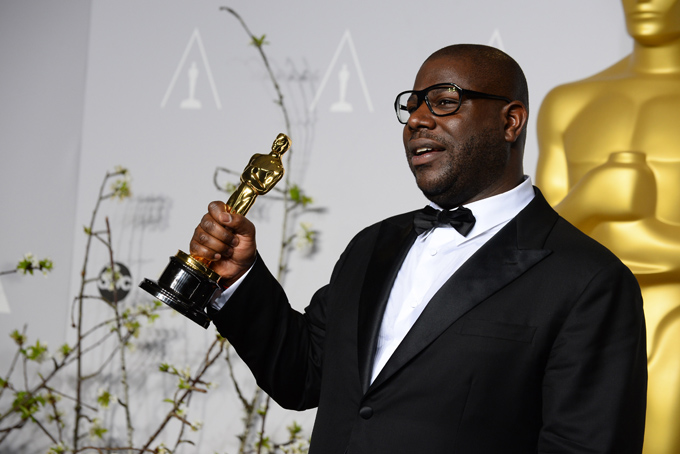
LONDON (AP) — The big winners on Oscar night may have been set in the 19th-century American South and outer space, but for many people across the Atlantic, this year’s Academy Awards belonged to Britain.
Best-picture winner “12 Years a Slave” has a British director — Steve McQueen — and star, Chiwetel Ejiofor, who lost out on an acting Oscar to Matthew McConaughey.
“Gravity,” which took seven trophies, starred Americans Sandra Bullock and George Clooney and had a Mexican director, Alfonso Cuaron, but it was made in London, using British special effects teams and post-production facilities.
“It’s very obvious the amazing quality and sophistication of the British film industry made this film happen,” said Cuaron, who won a directing Oscar for the 3-D space thriller.
Prime Minister David Cameron was quick to praise the British successes, congratulating McQueen in a tweet Monday and calling the wins for “Gravity” ”a tribute to the brilliance of British special effects wizards.”
As usual, British performers made a strong showing in the acting categories, where Judi Dench, for “Philomena” and Sally Hawkins for “Blue Jasmine” were both nominees. But this year also recognized British effects artists, composers — Steven Price took an Oscar for his “Gravity” score — and cinematographers. (Spare a thought for Britain’s Roger Deakins, cinematography nominee for “Prisoners,” who has now had 11 Academy Awards nominations without a win.)
British director Malcolm Clarke won the documentary short prize for “The Lady in Number 6,” a profile of musician and Holocaust survivor Alice Herz-Sommer, who died last week at age 110.
The British Film Institute — a government-funded body that distributes millions each year in lottery profits to filmmakers — said the industry was benefiting from “long-term strategic investment in development.”
It said a combination of investment from the lottery and from broadcasters like the BBC and Channel 4 and moviemaking tax incentives allowed Britain’s film industry “to punch above its weight.”
Harry Potter can take some of the credit, too. All eight of Warner Bros. big-budget films were made in England, providing both plenty of income and a decade-long training ground for British cast, crew, craftspeople and technicians.
Some filmmakers lament the fact that many of these made-in-Britain successes are not telling British stories. But most are happy about a Hollywood boom that will see the next “Star Wars” film shot at Britain’s Pinewood Studios, also home to the James Bond franchise.
“Creatively and technically, British filmmaking is at the top of its game,” said British Film Institute chief executive Amanda Nevill.
___
Jill Lawless can be reached at https://Twitter.com/JillLawless